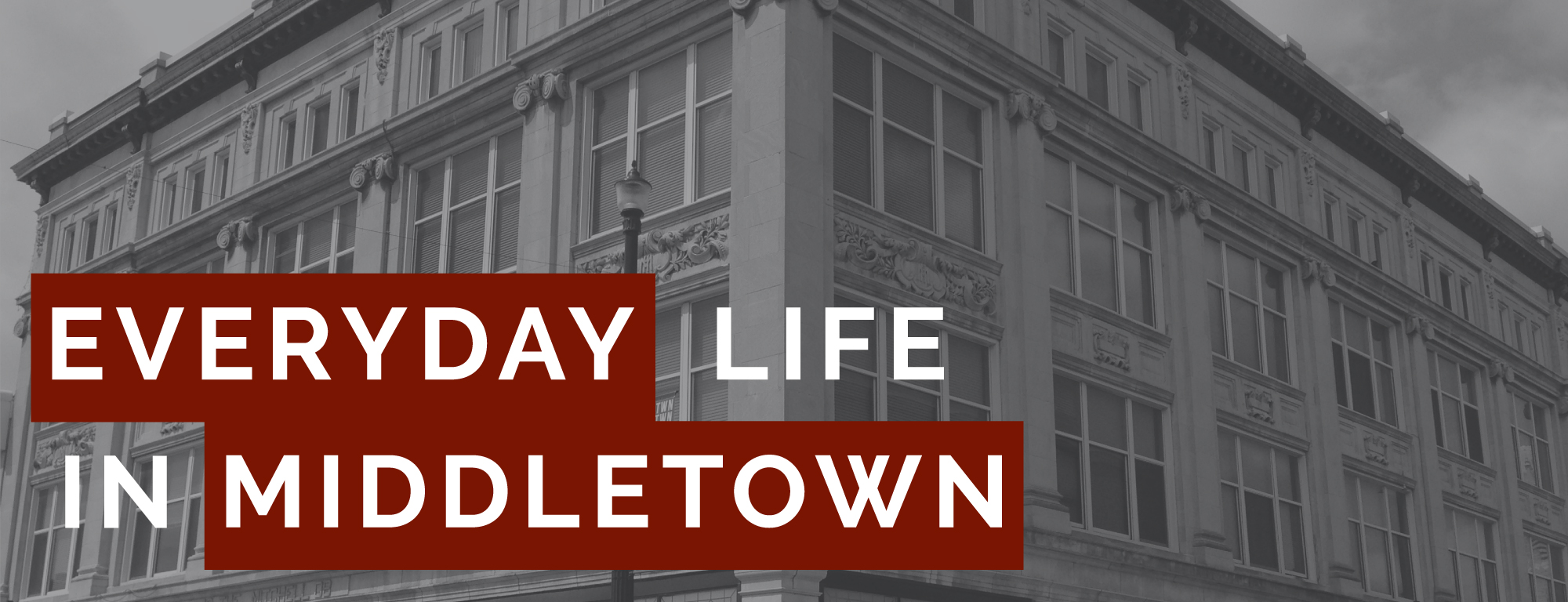The EDLM Corpus is a collection of 390 personal diary entries available through the Everyday Life in Middletown website and assembled on the Voyant text analysis site. These diaries were prepared by our panel of volunteer writers on three designated “diary days” per year since 2016. The Voyant tool allows us to visualize the frequency and usage of individual words in ways not possible through direct reading.
This corpus contains a total of 468,699 words, with 20,704 unique word forms. Among these unique words, “work” has the highest frequency, appearing 1,476 times throughout the corpus. This corpus provides valuable insights into the psychological impact of work in everyday life.
Work is an integral part of our lives, and its impact on our wellbeing cannot be overemphasized. The way we work and the nature of work has a significant influence on our physical, mental and emotional health. In this blog post, I will explore the way work is represented in Everyday Life in Middletown (EDLM) diaries and how writers relate it to their psychic state. Using corpus visualization tools and theories from work psychology, we can detect patterns of expression that might otherwise elude us.
EDLM’s Voyant corpus visualizations provide a representation of the frequency of words and phrases in the diaries. In the EDLM corpus, the word “work” is the most common, appearing in over 305 documents. The visualization shows that the word “work” is used frequently and in a variety of contexts, including employment, labor, and leisure.
Work is often associated with stress, burnout and a sense of dissatisfaction. According to the demand-control model of Karasek and Theorell (1990), work that is high in demands and low in control can result in psychological distress. This model suggests that workers who experience high levels of job strain are more likely to experience negative outcomes such as anxiety and depression.
In EDLM, we can see how work and employment are depicted as sources of personal strain. For example, the following snippet from the corpus: “the whole weekend blossomed in a lot of down time; of slacking before going back to work in hopes of maximizing my away-from-work decompression” (Diarist B35 Day 21). This quote highlights the feeling of burnout that can result from work, and the lack of enjoyment that comes with it.
Another aspect of work that can affect our wellbeing is the level of control we have over it. The autonomy-support theory of Deci and Ryan (2000) suggests that individuals who experience autonomy and support in their work environment are more likely to experience higher levels of motivation, satisfaction and wellbeing.
However, in EDLM, we see that control is often lacking in the workplace. For example, the following diary entry: “Woke up this morning and my thoughts are consumed with a work related issue. Feels insurmountable, but deep down I know it doesn’t really matter in the grand scheme of things. A week ago an acquaintance of ours killed himself over some sort of ‘issue’; to me none of life’s many problems are worth that sort of solution” (Diarist A26 Day 06). This quote highlights the lack of control and autonomy that can result from work, and the negative impact it can have on our wellbeing.
The prominent thread of work evident in these entries, and in EDLM’s corpus, highlights the importance of work in our lives and its impact on our wellbeing. The visualization and snippets from the corpus points us toward analysis of diarist’s representations of work as a source of stress, burnout and dissatisfaction, particularly when it is high in demands and low in control. The theories from work psychology provide a framework for exploring the psychological impact of work through EDLM’s archive and can help us identify ways to improve the work environment to promote wellbeing.
Note: You now have the opportunity to explore the EDLM’s Corpus on Voyant. With this unique resource, you can gain valuable insights into different aspects in everyday life. Simply follow the link below to access the corpus:
https://voyant-tools.org/?corpus=c579be130e197d3d03bbf5d7486c1bb3&query=work
-Muhammad Hafeez ur Rehman, Graduate Assistant, Center for Middletown Studies
-Edited by: Prof. James Connolly and Prof. Patrick Collier

